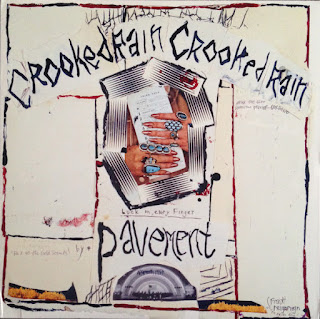Unknown Mortal Orchestra - Multi-Love (Album Review)
Unknown Mortal Orchestra - Multi-Love
(2015)
My copy: 2015 press by Jagjagwaur.
Multi-Love is Ruban Nielson’s most accessible album yet as the psych-rooted guitarist embraces pop and RnB to deliver some of his catchiest hooks. The production is also at its height, though in his vying for a wider audience, a chunk of the original UMO personality is scooped away.
The album bounces with staccato keys on its title track. Nielsen’s voice swoons as it engages with the keyboard melodies until drums tear into the track with a rising progression that lifts Nielson into the chorus. Rather than focusing entirely on the quirky, technical guitar melodies as with prior albums, Multi-Love shifts into a more consumer friendly blend of pop and RnB in its rich bass tones. “Like Acid Rain” is a touch too sweet though the production is coated with an acidic fizz that elevates an otherwise simple jazz/pop fusion take. Everything is affected and wavering on “Ur Life One Night” until the drums snap to their former sound for the choruses. Some of the treatments are a bit too on the nose, and at times the record tries too hard to be groovy (like an adult trying to fit in with the kids).
The big single is “Can’t Keep Checking My Phone,” where the bass does most of the melodic work. The voice is not to be understated though, as the most fun is had when Nielson’s voice trades hooks with the bass. The mood becomes more intimate in the vocals of “Extreme Wealth And Casual Cruelty” where the progression starts as almost unbearably cheerful with farty horns/synths. The track slowly morphs following a tacky sax solo, into the darkest composition on the album with dense guitar and bass. The layered percussion also adds a nice touch, retroactively lifting the theme of the track with its tonal shift.
“The World Is Crowded” has a simple structure with fun chord changes though the song is mostly focused on vocal harmonies. “Stage Or Screen” borrows from eclectic 60s pop bands (Love, Millennium, etc.) with its reverberating synth solo and flanged drum fills. The song bursts like a bubble, trickling into wobbly synth melodies before dissipating. The biggest piece of filler is the unnecessary “Necessary Evil” with a subdued chorus that fails to make an impression. “Puzzles” is one of the best tracks, with an atmospheric opening and three distinct segments. There is a lighthearted acoustic passage with strings/synth before pulsing guitar and bass force a change of direction. The track features the darkest choruses and relates closer to earlier UMO releases while still benefiting from the updated production and layering. The only issue is that it lingers too long upon returning to the acoustic riffing.
With Multi-Love Nielson found himself some real widespread fame. His new reputation would lead to continued improvements in production, but at a further cost of the weirder songwriting elements that made his self-titled release worthwhile. Ultimately, Multi-Love stands as a good transitional album; one that maintains some of the character of the old while boosting his appeal with more glossy production. What’s unfortunate is that when the changes are all accounted for, Multi-Love feels more like a lateral move.




Comments
Post a Comment